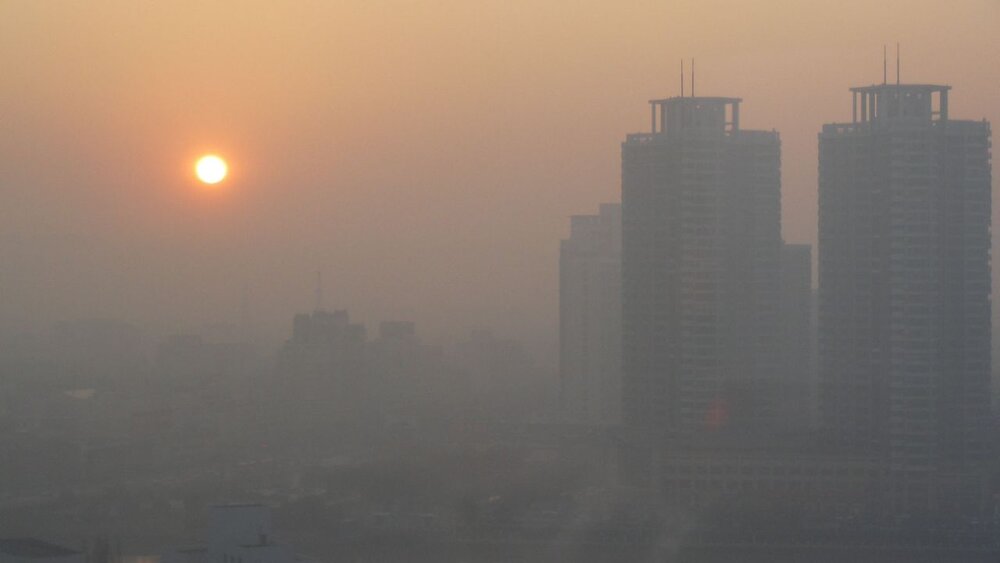Clean Air Law ‘up in the air’

TEHRAN – The Clean Air Law, enacted in July 2017, was supposed to be a solution to ease air pollution across the country, but now, a few years after the adoption of this law, the air is severely polluted, as different agencies neglect their legal duties to implement the law.
Comprising 34 articles, the law on clean air was adopted by Majlis [the Iranian parliament] after 6 years of continuous revisions.
Various executive agencies in the country, including the Ministry of Interior, the Ministry of Petroleum, the Ministry of Energy, the police, the municipality, the National TV, etc., have been obliged to implement measures to control air pollution. Three years after the law was enacted, many agencies have not only refused to take action to eliminate air pollution but have also taken steps against the Clean Air Law.
Mobile emitters
There are two main types of air pollution sources, mobile sources including cars, buses, planes, trucks, and trains, and stationary sources such as oil refineries, industrial facilities, and factories.
Some 40 percent of the emission is produced by stationary sources, while 60 percent of the pollution is generated from mobile sources.
However, due to severe air pollution in recent days in some metropolises of the country, including Tehran, Isfahan, Arak, Tabriz, etc., many experts have emphasized the share of stationary sources in air pollution in these areas because there are signs of non-standard fuel consumption such as Sulfur gasoline or mazut (a heavy, low quality fuel oil, used in power plants and similar applications).
Even mazut consumption has been approved in some power plants in the cities of Arak in central Markazi province, and Toos in northeastern Khorasan Razavi province, ISNA reported on Friday.
Fuel supply in accordance with national standards
Meanwhile, sulfur gasoline or mazut are still used in Iran, according to Article 18 of the Clean Air Law, the Ministry of Petroleum is obliged to produce fuel, including gasoline, gas oil, fuel oil, and kerosene in accordance with approved national standards (Euro 4).
However, unfortunately, the available information shows that not only diesel fuel is used in some parts of the country, but according to Anoushirvan Mohseni Bandpei, governor-general of Tehran, industries in the capital use gas and diesel fuel, at least 50 percent of which meet Euro 4 standards, while the Ministry of Petroleum is responsible to produce all fuel according to Euro 4 standards.
One of the agencies that play an important role in enforcing the Clean Air Law is the police. The law gives the necessary authority to deal with mobile sources of pollutants, including light, heavy, semi-heavy vehicles, and motorcycles, and Article 6 of the Clean Air Law emphasizes that law enforcement is required to fine and even stop the polluting vehicles or those without an inspection label.
While moving sources of pollutants such as diesel cars, motorcycles, private cars, etc. are one of the most important causes of particulate matter less than 2.5 microns - the most important cause of air pollution in the second half of the year - which unfortunately vehicles that do not have technical inspection are only fined in Tehran and several other metropolises.
Clunkers plying the roads
On the other hand, the police, which is responsible for enforcing the clean air law, has been implementing a plan to release old motorcycles from parking lots since November 2020, so that thousands of clunker motorcycles are returning to the transportation cycle, while many of which should be scrapped.
Also, the share of motorcycles in the production of gaseous pollutants is about 21 percent and in the production of suspended particles is 10 percent.
In addition, every 10 carbureted motorcycles emit as much particulate matter as an old diesel bus per kilometer, which is a major cause of air pollution.
In addition to clunker motorcycles, old cars are also important factors in air pollution during fall and winter.
The number of old cars in the country is so high that Issa Kalantari, head of the Department of Environment (DOE), had previously stated that we have become a country of clunker vehicles because now 87 percent of the country's minibusses, 81 percent of motorcycles, 73 percent of buses, and 61 percent of trucks should be scrapped.
On the other hand, Article 4 of the Clean Air Law stipulates that the production and import of all types of vehicles should be compliant with the emission limits announced by the DOE, which means Euro 5 emission standards.
Unfortunately, the car manufacturers still refused to implement Article 4, and even, a number of cars were numbered with the Euro 4 standard due to the DOE permit and the approval of the Cabinet of Ministers.
Responsible bodies neglect
In addition to related ministries, National TV is required by Article 28 of the Clean Air Law to provide education, information, and cultural programs to raise awareness of air pollution.
Masoud Tajrishi, deputy head of the DOE for human environment, had previously stated in an interview with ISNA that, unfortunately, some organizations, despite being obliged to implement the clean air law, do not perform the tasks. For example, IRIB has not yet taken any measures in this regard.
FB/MG
